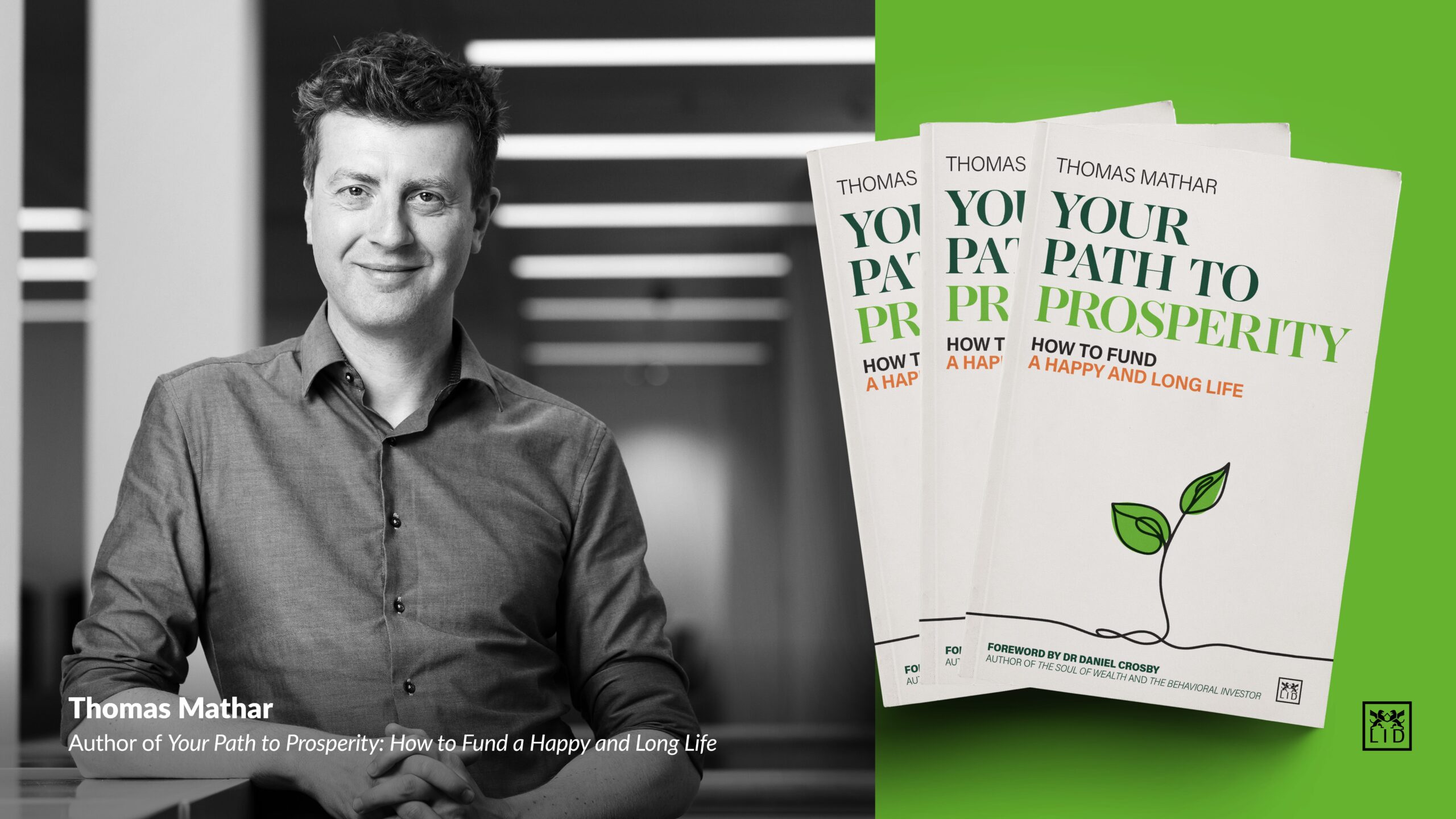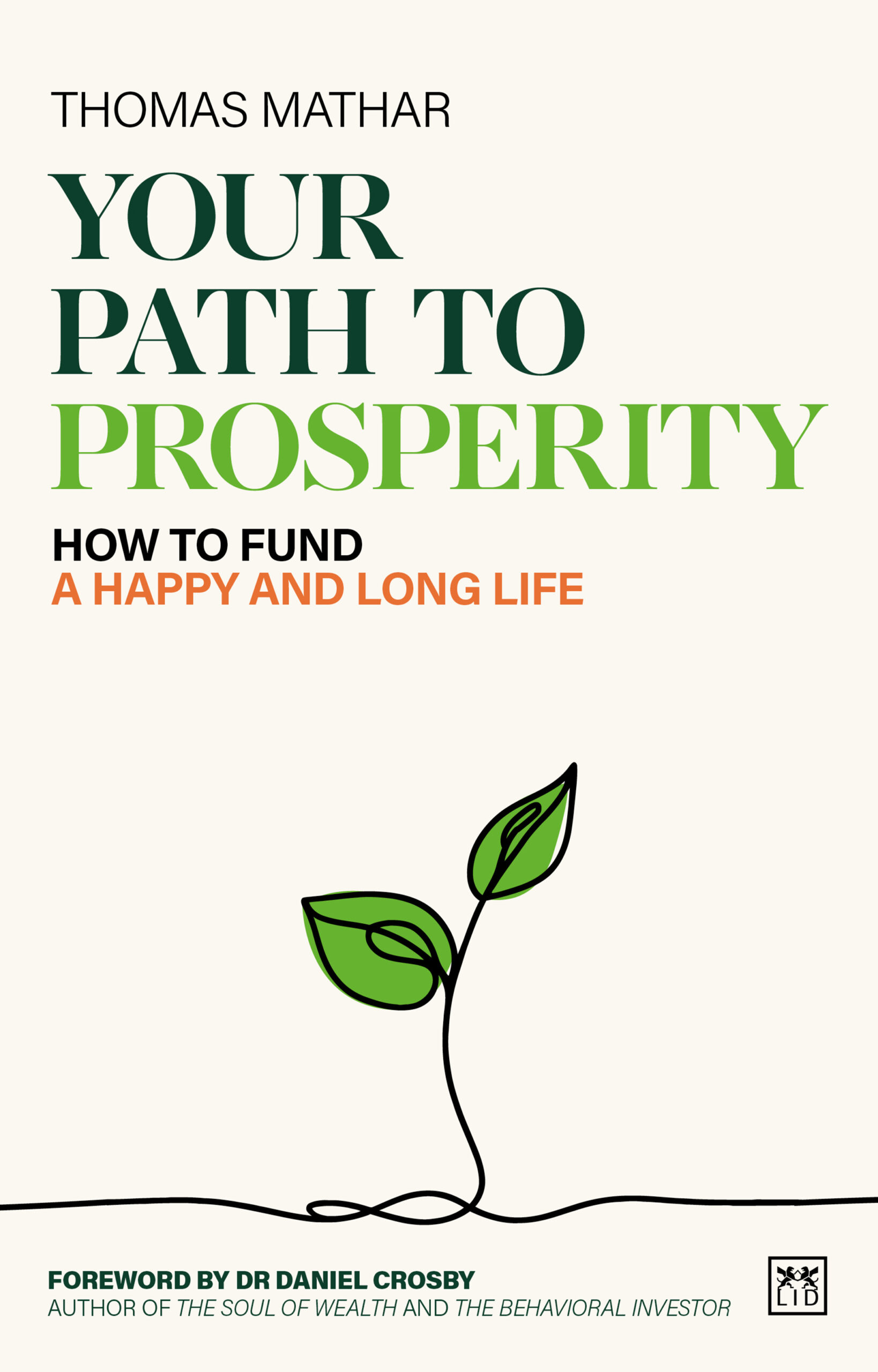|
Why We Struggle with the Future (and why that’s totally normal) with Dr Thomas Mathar
Why We Struggle with the Future (and why that’s totally normal)

By guest contributor Dr Thomas Mathar
Let’s rewind. Not to 1985 or even to the invention of the credit card. Let’s go way back. Think Adam and Eve. Or more precisely: think pre-Adam and Eve – say, 12,000 years ago, when every one of us was still a hunter-gatherer.
For over 95% of human history, our brains evolved to handle short-term problems. “Where’s the next berry bush?” “Is that a lion or just Bob in the bushes again?” “Will this person share their food with me or not?” That’s the environment our instincts were shaped in – a world of immediacy, risk, and quick decisions.
Then came agriculture. We settled down. Invented grain storage. Invented hierarchy. Invented, eventually, money. Fast forward a few millennia, and we’re not just stockpiling wheat but planning our pensions. Somewhere along the way, someone thought up the concept of retirement – a phase of life after work that is still somehow funded.
That’s quite the pivot. From dodging sabre-toothed tigers to topping up our SIPPs.
But evolution doesn’t move as fast as finance. Our brains – marvellous as they are – are built for now. Which is precisely why, as I argue in Your Path to Prosperity – How to fund a long and happy life, it’s completely normal that we struggle with long-term planning.
Let’s break this down.
The human operating system: cognition, emotion, motivation
This is our internal hardware – how we think, feel, and act. Cognition helps us reason. Emotion guides our instincts. Motivation pushes us to move.
For most of human history, this trio served us brilliantly. Emotions gave us fear (so we didn’t pet bears). Motivation gave us hunger (so we found food). Cognition helped us remember which berries caused diarrhoea. Together, they ensured survival.
But this system has a fatal flaw when it comes to delayed gratification. It prioritises now. Not in 30 years. Not in 3 months. Right. This. Second.
Which is why eating one marshmallow now instead of waiting for two later is hard. Why saving is hard. Why putting off a holiday to top up your pension is really hard.
Predictably irrational (but still brilliant)
Behavioural scientists have long pointed this out. Dan Ariely coined the phrase “predictably irrational” to describe the ways we systematically make suboptimal decisions – not by accident, but because our brains are wired that way.
These findings were important. They countered the neat, robotic image of humans presented in standard economic theory – that we’re always rational, always optimising, always aware of opportunity cost.
But here’s the part I want to emphasise: being “irrational” isn’t the same as being stupid. It’s being human in an inhumanly complex world. We’re not flawed – we’re just unprepared.
Why? Because the challenge we now face – long-term planning for a 100-year life – is completely unprecedented. No society in history, no evolutionary biology manual, no religious or cultural script has prepared us for this. We’re navigating a map no one’s ever drawn before.
Captain of the (retirement) ship
Here’s where things get trickier.
In the past, retirement was a more collective affair. Generous state pensions. Gold-plated employer schemes. A shorter life expectancy. You didn’t need a long-term plan because the system was the plan.
Not anymore.
The burden of long-term planning has shifted. You and I – we’re in charge now. The state gives less. Employers match less. Markets fluctuate. And whether you like it or not, you’re the captain of your retirement ship.
This isn’t just a financial burden. It’s a mental one. (Perhaps even one that fuels the populist movements of our time). Thinking about the future, imagining your 75-year-old self, weighing trade-offs between today and 2055 – that’s not budgeting. That’s cognitive weightlifting.
So, it follows that the solution can’t just be financial. It has to be psychological. Emotional. Human.
So what do we do?
In Your Path to Prosperity – How to fund a long and happy life, I argue that the solution starts with self-knowledge. It’s about understanding the inner mechanics of how you think and feel about money and time.
Here’s what that looks like in practice:
- Understand your money mindset: What unconscious beliefs and emotional reactions do you have around money? Are you a spender, a hoarder, an avoider, a worrier? Until you see these patterns, they’ll quietly run your life.
- Connect with your future self: Make them real. Vivid. Human. Not a vague idea in a rocking chair, but someone with feelings, needs, and dreams. The more real they are to you, the more likely you’ll act in their interest.
- Spot the mental traps: Our world is engineered for distraction and consumption. Retail psychology, push notifications, “just one click” culture – all designed to separate you from your better judgement. There’s a reason that button isn’t just called “Buy”, but “Buy now”. Recognising these traps is half the battle.
- Plan for transitions: We won’t just retire. We’ll shift, pause, restart, retrain. A multistage life requires flexibility, not fixed scripts. The future isn’t one big destination – it’s a series of stopovers. Your finances need to be agile. But so does your mindset.
- Aim for FLOW, not FIRE: Not financial independence, but Financial Lives Optimised for Wellbeing. This means money that enables a good life today and tomorrow, rather than being stockpiled for an abstract future.
So yes – if you feel overwhelmed by long-term planning, you’re not failing. You’re just human. You’re living through an extraordinary moment in history where ancient instincts collide with modern expectations.
But by recognising this – by learning how your brain actually works, not how you wish it worked – you can build a future that feels less like a chore and more like a path.
One that’s funded, yes. But more importantly – prosperous.
ABOUT THE AUTHOR
Suggested Reading
 Your Path to Prosperity unpacks why money choices are so overwhelming. And why we’re wired to struggle with them. What’s more, the book offers a way forward. It reminds us that money is essential. But the real asset is self-knowledge: understanding your money-mindset, what makes you happy, how you deal with uncertainty, and connect with our future selves.
Your Path to Prosperity unpacks why money choices are so overwhelming. And why we’re wired to struggle with them. What’s more, the book offers a way forward. It reminds us that money is essential. But the real asset is self-knowledge: understanding your money-mindset, what makes you happy, how you deal with uncertainty, and connect with our future selves.

 Dr Thomas Mathar (Dr Tom for short) is a researcher, author, podcaster and speaker who helps shift the way we think about money. He’s the Head of Money Mindshift at Aegon UK, a long-term savings provider, and works at the intersection of financial wellbeing, behavioural science and longevity education. He holds a PhD in social anthropology from Humboldt University in Berlin and lives in Edinburgh with his wife and children.
Dr Thomas Mathar (Dr Tom for short) is a researcher, author, podcaster and speaker who helps shift the way we think about money. He’s the Head of Money Mindshift at Aegon UK, a long-term savings provider, and works at the intersection of financial wellbeing, behavioural science and longevity education. He holds a PhD in social anthropology from Humboldt University in Berlin and lives in Edinburgh with his wife and children.